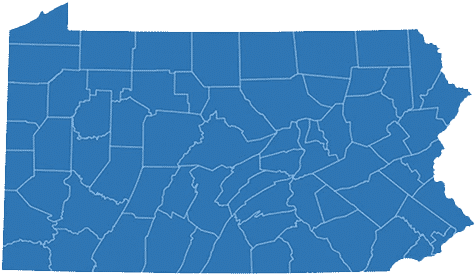Pennsylvania Bankruptcy Lawyers
How long does a bankruptcy case take?
Whether a case is a Chapter 7 or Chapter 13, the basic steps in the process are the same. Generally, a Chapter 7 bankruptcy case will take approximately 4 to 6 months from the date when the case is filed until the case is closed. A Chapter 13 case will typically last 36 to 60 months from the date of filing.
The sequence of events in a typical Chapter 7 case include the following:
- Consultation.
- Information collection.
- Bankruptcy documents prepared.
- Client completes the first consumer credit counseling course.
- Bankruptcy documents reviewed by clients and attorney.
- Case filed.
- Meeting scheduled with Trustee approximately 20 days after case is filed and Clerk’s Office mails the notice of the meeting of creditors.
- Client and attorney attend meeting of creditors together.
- Client completes the second consumer credit counseling course.
- Creditors have 60 days after the meeting of creditors to raise objections regarding the bankruptcy case if they choose.
- Approximately 90 days after the meeting of creditors the Clerk’s Office will mail the discharge order demonstrating the termination of any personal liability on the debts included within the bankruptcy documents.
- Approximately 14 days after the discharge order is issued, then the Clerk’s Office will mail the final decree that signals the end of the bankruptcy case.
Our legal help is affordable.
You can expect upfront, transparent quotes that include the court’s filing fee. Our payment plans make legal services affordable for you. We know the financial pain because we’ve been there. Our founder had to climb back to financial freedom after filing for bankruptcy relief. We’re here to help you on your journey and make the process affordable.
We keep the process simple.
Frequently Asked Questions
Most people that file bankruptcy are able to keep their possessions.
- No hidden fees
- Lowest payment plans in the state
- Filing fees included
- Free consultation
- No travel required
- Harassing calls must stop
- Lawsuits cannot be filed or pursued
- Repossession activity must stop
- A foreclosure sale cannot proceed
- Utility shut offs cannot occur
Most individuals will attend one meeting with one of our attorneys and a Trustee assigned to their bankruptcy case. Currently, meetings are being conducted from the privacy of your own home via telephone or computer.
Chapter 7
- The shorter, quicker method to address your debt.
- Most of your unsecured debt is eliminated including, credit cards, lines of credit, deficiencies from automobile repossessions, personal loans, unpaid rent from former agreements, and medical bills, for example.
- Pennsylvania allows the choice between federal and state exemptions to protect property and most individuals keep their possessions, homes, and automobiles.
Chapter 13
- Requires a commitment to develop a payment plan to address past due debts for important property, such as a home or automobile.
- Consistent income that disqualifies a filer under Chapter 7 still provides protection under the bankruptcy law from creditor collection activity and provides a way to pay some of the outstanding debt and discharge any remaining balance.
- Provides an opportunity to keep some assets that would be surrendered if the filer was forced to file a Chapter 7 case.
We are a debt relief law firm. We help people file for bankruptcy under the bankruptcy code, if necessary.

